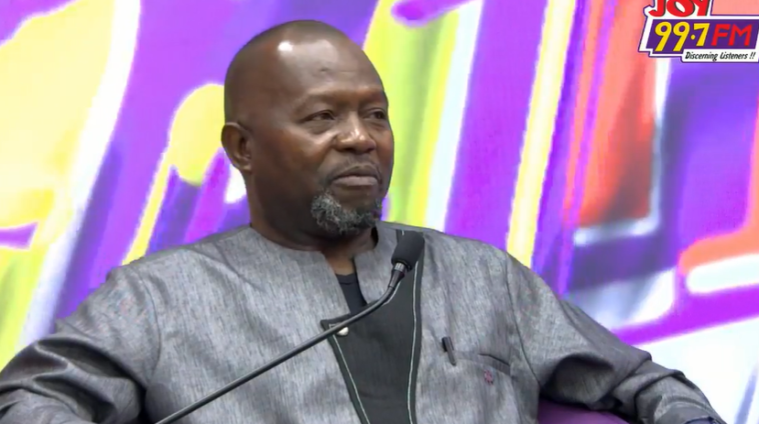
Audio By Carbonatix
A former Deputy Attorney-General, Dr Dominic Akuritinga Ayine, has asserted that the Constitution does not guarantee any immunity whatsoever to Members of Parliament against arrest.
Speaking on the Super Morning Show on Thursday, November 4, 2021, he clarified that the Constitutions accords MPs a privilege to facilitate their work as well as prevent instances of external interference in the discharge of their duties.
"Parliamentarians are not above the Law; neither are we outside the Law. In fact, the constitutional provision is very clear. We are accorded privileges, not rights.
"We don't have a right not to be arrested but we have a privilege not to be arrested in the course of the performance of our duties," he said.
The comment comes in the wake of the tussle between the Legislative arm of government and the Ghana Police Service over the attempted arrest of the MP for Madina, Francis Xavier-Sosu.
The Madina MP is being sought by the Police after he joined his Constituents to protest against bad roads in the Constituency. A protest which turned chaotic with car tyres being set ablaze amid roadblocks.
During the protest, there was an attempt to arrest Mr. Sosu, but he resisted the arrest and subsequently filed a case of contempt of Parliament against the said police officials. Currently, the Ghana Police Service has officially filed charges against the MP.
This has sparked public discourse over whether or not an MP can be arrested, with a section of the public citing article 117 as grounds for the MP not to be arrested. But wading into the discourse, Dr Ayine stated categorically that there's no law that protects MPs from being arrested unless the arrest will affect the functions of the House.
"Parliament is the heartbeat of every democracy and every functioning democracy must ensure that MPS, efficiently execute their duties without interference, especially in the context of the relationship between the Police and Parliament."
"If you look at the Legislature and the Executive arm of government under which the Police falls, you'll understand that there may be times when the Executive branch may abuse its powers unduly by interfering in the functioning of the Legislature in order to gain some political mileage.
"So the drafters of the Constitution thought that it is important that we constitutionalise these privileges in order to insulate Parliament from external interferences. These are the reasons behind the privileges and immunities accorded to us under the Constitution," he clarified.
Latest Stories
-
Republic Bank reveals benefits of joining the “Republic Verse” – A bold banking universe
9 minutes -
Workers calling for my resignation have not paid attention to GIADEC law – CEO dismisses calls for removal
17 minutes -
Cocoa farmers who sell farms to galamsey operators will face jail – Concerned Farmers Association
22 minutes -
Crush Smoothies, Luv FM to host unforgettable ‘Luv and Music’ Valentine’s event in Kumasi
22 minutes -
Wovenu SHS matron, police officer arrested over alleged diversion of students’ food items
23 minutes -
Parliament to launch corporate strategic plan 2026–2030
23 minutes -
Prudential Bank, Nita Travels to take customers on Korea, Turkey, China business trips
26 minutes -
Socodevi worried over threat of galamsey on cocoa farms
26 minutes -
Vote-buying is a criminal matter, not an internal party issue – Haruna Mohammed
27 minutes -
‘Unfortunate’ — Akwatia MP reacts to JoyNews galamsey exposé
36 minutes -
GNFS contains gas leak after explosion at Buduburam filling station
45 minutes -
Finance Minister to outline Cabinet’s cocoa reforms in national address on Feb 12
56 minutes -
Where National Health Insurance ends, we begin – GMTF Boss
1 hour -
I’ll work relentlessly to secure victory for NPP in 2028—Bawumia
1 hour -
Unite to end digital violence: Why online safety Is a gender justice issue
1 hour

